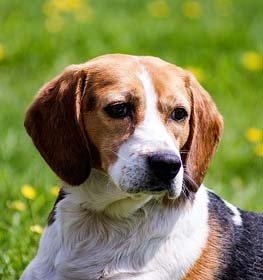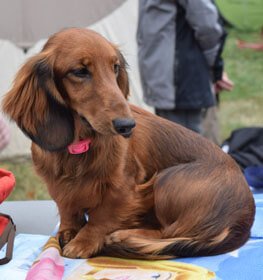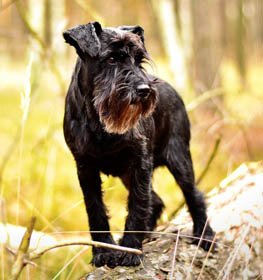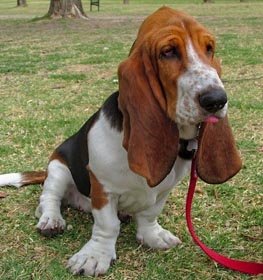Tyrolean Hound Information & Dog Breed Facts
Collection of all the general dog breed info about Tyrolean Hound so you can get to know the breed more.
| Group | Hunting Dogs |
|---|---|
| Popularity Rank | 215 |
| Reviews | 0 |
| User Ratings | |
|
Compare the Tyrolean Hound With Other Dogs
Select at least one dog breed to make the comparsion. | |
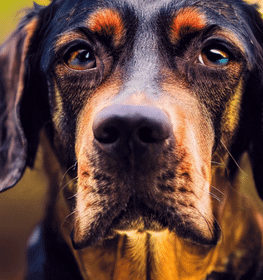 | |
| Origin | |
|
Common Names & Aliases
What other names is a Tyrolean Hound known by? Discover all traditional, regional and informal names used for this breed. | Tiroler BrackeTyroler Bracke |
|---|---|
|
Breed Classification
What type of dog breed is a Tyrolean Hound? Learn about its genetic classification and breeding category. | Purebred |
|
Size Classification
What size category is a Tyrolean Hound? Learn how big the Tyrolean Hound breed typically grows. | LargeMedium |
|---|---|
|
Weight Statistics
How much does a Tyrolean Hound weigh? Discover typical weight ranges for adult males and females of the Tyrolean Hound breed. | Male: 35-65 lbs (16-30 kg), Female: 30-50 lbs (14-23 kg) |
|
Average Weight
What is the average weight of a Tyrolean Hound? | Male: 50 pounds (22.5 kg), Female: 41.5 pounds (19 kg) |
|
Height
How tall is the Tyrolean Hound? Tyrolean Hound height: | Male: 17-20 inches (43-51 cm), Female: 16-19 inches (40-48 cm) |
|
Average Height
What is the average height of a Tyrolean Hound? | Male: 18.5 inches (47 cm), Female: 17.5 inches (44 cm) |
|
Price Range
How much does a Tyrolean Hound puppy cost? Find current market prices and factors affecting Tyrolean Hound costs. | Unknown Unfortunately, we couldn't find the price of the Tyrolean Hound. If you have a Tyrolean Hound for sale, please advertise it on a reliable website to make sure the Tyrolean Hound gets to a happy place. |
|---|---|
|
Availability
How easy is it to get a Tyrolean Hound? How many Tyrolean Hound are there in the world? | Average: The Tyrolean Hound is a commonly available dog breed. There is less risk of overbreeding compared to the very popular dogs. Of course, they may be more popular in some countries, and inbreeding may occur, so be careful. |
|
Intelligence Rating
How intelligent is a Tyrolean Hound? Discover the Tyrolean Hound's intelligence ranking and learning capabilities. | Very smart: Tyrolean Hound is an excellent dog breed. You can teach them many tricks and commands. The limit is your creativity. They understand and memorize new commands in 5-15 repetitions. This breed obeys the first command 85% of the time or better.
The Tyrolean Hound is one of the top breeds in the dog intelligence ranking. |
|---|---|
|
Training Difficulty
How easy is it to train a Tyrolean Hound? Learn about the Tyrolean Hound's trainability and response to training methods. | Tyrolean Hound dogs are easy to train. They find out the association between commands and actions quite quickly. |
|
Watchdog Rating
How good is a Tyrolean Hound as a watchdog? Learn about the Tyrolean Hound's alertness and guarding instincts. | Tyrolean Hound dogs are one of the best watchdogs. Their main job is to observe and they're very consistent in their effort. The best vocal cords and sense of hearing belong to them. Usually, they're very territorial and protective about their property, so the Tyrolean Hound dogs will alert you if they sense something different. |
|
Territorial Protection
Is a Tyrolean Hound protective of its territory? Learn about the Tyrolean Hound's guarding instincts and behavior. | Tyrolean Hound dogs strongly protect their territory. This breed is a complete security guard, so you don't have to be afraid in case of danger. |
|
Personality Traits
What personality does a Tyrolean Hound have? Learn about characteristic Tyrolean Hound temperament and behavior traits. | ActiveStubbornIndependentAlertCourageousIntelligentAffectionateFree-spirited |
|---|---|
|
Sensitivity Level
How sensitive are they? Tyrolean Hound sensitivity: | Tyrolean Hound dogs have an average emotional level and are not the most sensitive dog breed. Sometimes it's okay to change the daily routine, have guests and listen to loud music.
Some dogs handle moderate punishment very well, while others crumble apart at a dirty look. This breed is not affected emotionally by moderate punishment. |
|
Affection Level
How affectionate are they? Is a Tyrolean Hound a good family dog? | Average to High: Tyrolean Hound dogs are highly affectionate dogs. They like being involved in the family's life. This breed isn't considered an aloof dog. |
|
Social Needs
How much social interaction does the Tiroler Bracke need? Tyrolean Hound social needs: | Tyrolean Hound dogs are kinda antisocial. This breed doesn't like being around people all the time, they tolerate being left alone. |
|
Impulse to Wander or Roam
How likely is the Tyrolean Hound to run away? Does this breed explore or wander a lot? Does Tyrolean Hound roam? | Tyrolean Hound dogs have high wanderlust potential, which means that this breed has a strong desire for exploring the world. Safer to walk them on a leash unless you teach them how to get back to you on command. This breed is also able to cause damage to your fence. |
|
Prey Drive
Do this canine have a strong prey drive? Does Tyrolean Hound have high prey drive? | Tyrolean Hound dogs have a high impulse to chase and catch something. Cats or any other small animals are in danger. It's a natural instinct, doesn't necessarily mean that Tyrolean Hound dogs are aggressive. Better to keep this breed on a leash. |
|
Barking Frequency
Does a Tyrolean Hound bark a lot? Learn about typical Tyrolean Hound vocalization patterns and triggers. | Average to High: The Tyrolean Hound is a vocal breed. Not the best choice if you prefer a quiet breed. They often bark loudly and howl sometimes. They can change their barks depending on their emotional level and what they're trying to say. Different barks could mean the same and the same barks could have different meanings.
Top reasons for barking: protection, alarm, fear, boredom, attention-seeking, greeting, separation anxiety, compulsive barking. |
|---|---|
|
Playful Nature
How playful is a Tyrolean Hound? Understand the typical play drive and energy level of the Tyrolean Hound breed. | The Tyrolean Hound is a playful breed. Excited barking and sometimes nipping will alert you to play. |
|
Apartment Adaptability
Can a Tyrolean Hound live in an apartment? Learn about the Tyrolean Hound's suitability for apartment living. | It is not recommended to keep the Tyrolean Hound breed in the home. It does best in the garden, but if you do want to keep it indoors, it should be exercised thoroughly with long daily walks, so you can keep the Tyrolean Hound indoors by introducing daily routines. |
|
Lifestyle Adaptability
How adaptable is a Tyrolean Hound to lifestyle changes? Learn about the Tyrolean Hound's flexibility to new situations. | Average: Tyrolean Hound dogs adapt to lifestyle changes and different living environments quite okay usually. |
|---|---|
|
Alone Time Tolerance
Can a Tyrolean Hound be left alone? Learn about the Tyrolean Hound's tolerance to solitude. | Tyrolean Hound dogs handle alone time quite well. They are not prone to have separation anxiety. |
|
Bite Risk Assessment
What is a Tyrolean Hound biting potential? Learn about the Tyrolean Hound's bite risk factors. | Low 🔽 The Tyrolean Hound has a low chance of biting somebody. Top reasons for dog bite: protection, pain, excitement, herding instinct, being provoked. (Data based on the available online bite statistics.) |
|---|---|
|
Mouthing Tendency
Is a Tyrolean Hound mouthy? Learn about the Tyrolean Hound's tendency to use mouth during play. | Tyrolean Hound dogs have an average tendency to nip, chew, playbite, or herd people. It's a common habit during puppyhood, not aggressive behavior. These "bites" don't hurt, but Tyrolean Hound dogs need to be taught a good attitude. |
|
Bite Strength Rating
How strong is a Tyrolean Hound bite? Learn about the Tyrolean Hound's bite force measured in PSI. | Between 200 and 400 PSI ⏺ Tyrolean Hound bite force: Ordinary. Bite force Tyrolean Hound measurements typically fall within the range of 200 to 400 PSI. The bite force of a Tyrolean Hound is considered ordinary when compared to other dog breeds, but it is still quite powerful. This Tyrolean Hound bite force PSI can cause bite wounds. Tyrolean Hound bite PSI is not something that should be feared if the dog is well-trained and managed. To avoid any issues, it's essential to learn how to train a Tyrolean Hound puppy not to bite from an early age.
The Tyrolean Hound, and many others, have a fearsome presence because they have significant jaw strength, so it is important not to anger the dog and have it around strangers until it is fully trained. However, they are usually quite calm and good companions, they work well in families and are easy to care for. In conclusion, while the Tyrolean Hound bite force is certainly an interesting aspect of the breed, it is important not to let it overshadow the many other reasons why these dogs are so loved and respected. With proper training and socialization, a Tyrolean Hound can be a loyal and protective companion for your family. |
|
Average Lifespan
How long does a Tyrolean Hound live? Learn about the typical lifespan of the Tyrolean Hound breed. | 12-14 years The average lifespan of Tyrolean Hound: 13 years |
|---|---|
|
Climate Tolerance
How well does a Tyrolean Hound handle different weather? Learn about the Tyrolean Hound's climate adaptability. | Tolerates warm and cold weather Dogs that tolerate hot and cold weather are typically those that have a double coat of fur. Dogs with a double coat of fur have a layer of fur that insulates their skin and helps protect them from the cold and the heat. |
|
Health Concerns
What health issues are common in a Tyrolean Hound? Discover typical conditions affecting the Tyrolean Hound breed. | The Tyrolean Hound is a healthy breed, but there are certain health issues that you should check with your vet regularly. |
|
Vet Care Frequency
How often does a Tyrolean Hound need vet visits? Learn about the Tyrolean Hound's veterinary care requirements. | Average The Tyrolean Hound should have a complete physical check-up at least once per year. If your dog shows any symptoms, call your veterinarian. |
|
Energy Rating
How energetic is a Tyrolean Hound? Understand daily activity needs of the Tyrolean Hound breed. | Tyrolean Hound dogs have a higher energy level than other dog breeds. If you want a dog for snuggling on the couch, this breed isn't the perfect choice for you. |
|---|---|
|
Activity Requirement / Exercise Need
How much exercise does a Tyrolean Hound need? How much exercise do Tyrolean Hound dogs require per day?
Do Tyrolean Hound dogs need a lot of exercises? | Tyrolean Hound dogs need a lot of exercises. Long walks should be on a daily schedule. If you live an active life, this breed can be a good choice for you. |
|
Sleeping Need
How much sleep does the Tyrolean Hound breed need? | Tyrolean Hound dogs are quite energetic dogs and they don't spend too much time with sleeping. If you live an active life, this breed can be a good choice for you. |
|
Obesity Tendency
Is a Tyrolean Hound prone to weight gain? Learn about the Tyrolean Hound's obesity risks. | Average: The Tyrolean Hound has an average risk for obesity. Daily walks should be on schedule. To make your dog happy and fit, feed him with quality dry dog food and live an active life together. Try to find the happy medium between exercise and feeding.
If you notice any weight gain, consult your veterinarian and make a diet plan. Reduce unhealthy food and snacks, and measure the Tyrolean Hound weight regularly. |
|---|---|
|
Food Consumption
How much food does a Tyrolean Hound need daily? Learn about the Tyrolean Hound's feeding requirements. | 1.5 to 2.5 cups of high-quality dry food a day. |
|
Allergy Friendliness
Is a Tyrolean Hound hypoallergenic? Learn about the Tyrolean Hound's suitability for allergy sufferers. | No Tyrolean Hound dogs don't do well with allergy sufferers by causing allergic reactions. Some dog breeds are even considered to higher possibility of an allergic response. Coat type isn't necessarily relevant, because most people are allergic to dander (flakes on the dog's skin) or saliva, not actually to dog hair. |
|---|---|
|
Coat Colors
What colors does a Tyrolean Hound come in? Discover all possible Tyrolean Hound color variations. | BlackTan Red |
|
Grooming Requirements
How much grooming does a Tyrolean Hound need? Learn about Tyrolean Hound coat maintenance requirements. | Professional: This breed needs a lot of work to keep in good condition. The Tyrolean Hound requires grooming on a daily basis.
Cutting the dog's hair by a professional groomer is essential. Everyday brushing of the dog's coat is necessary to reduce shedding. Ears and eyes should be cleaned regularly to avoid infections. Don't skip the seasonal flea treatment too. Dog nail trimming and dog bath should be on a weekly schedule. Taking good care of your Tyrolean Hound is time-consuming and requires excellent grooming skills. If you don't have the time and skill search for the best dog groomer or clipping service in your area and book an appointment. Maybe you're lucky to have a dog boarding service that includes grooming or walk-in dog bath places nearby. |
|
Drooling Tendency
Does a Tyrolean Hound drool a lot? Learn about the Tyrolean Hound's drooling habits. | The Tyrolean Hound is an average drooler. Drooling is the unintentional saliva flowing outside of the mouth. It can be completely normal or a sign of a health problem.
If you notice any change in your dog's drooling habit, you should contact a vet as soon as possible. |
|
Stinkiness Rating
Does a Tyrolean Hound smell bad? Learn about the Tyrolean Hound's natural odor levels. | Medium ⏺ The Tyrolean Hound has an average chance of bad smell. Top reasons for dog stinkiness: infection of bad tooth/ear/skin folds, gas attacks. |
|
Coat Characteristics
What type of coat does a Tyrolean Hound have? Learn about the Tyrolean Hound's fur characteristics. | ThickDoubleCoarse |
|
Bathing Needs
How often does a Tyrolean Hound need baths? Learn about the Tyrolean Hound's bathing requirements. | 3-4 weeks More often than average. These dog coats tend to be longer, softer, and oilier than short-haired breeds. While a good bath every now and then is a great way to keep your buddy from becoming overly smelly, be mindful about overbathing.
Bathing will wash away your dog’s natural oils, while a simple brushing every few days should keep them clean. |
|
Shedding Level
How much do Tyrolean Hound dogs shed? How to control, reduce and prevent the shedding of the Tiroler Bracke? Do Tyrolean Hound dogs shed a lot? | Tyrolean Hound dogs are low shedders. It's a natural process of the hair growth cycle. The amount and frequency of hair loss mostly depend on their health status and breed type. |
|
Child Compatibility
Is a Tyrolean Hound good with children? Learn about the Tyrolean Hound's behavior around kids of different ages. | Tyrolean Hound dogs are kid-friendly dogs. This breed is a good choice if you have children. |
|---|---|
|
Pet Compatibility
How well does a Tyrolean Hound get along with other pets? Discover the Tyrolean Hound's compatibility with other animals. | Tyrolean Hound dogs usually don’t get on well with other pets. |
|
Stranger Friendly
Are they aggressive or friendly towards/with strangers? Tyrolean Hound temperament with other people: | Tyrolean Hound dogs are not the most stranger-friendly dogs. |
|
Cat Friendly
How well do Tyrolean Hound dogs get along with cats? Are they good with kittens? What is this fido's temperament with cats? Can they be good with cats? Can the Tyrolean Hound breed live with a cat? | Tyrolean Hound dogs are not the most cat-friendly dogs. |
|
Dog Friendly
Is Tyrolean Hound good with other dogs? Are they dog-friendly dogs? How well do Tyrolean Hound dogs get along with other dogs? | Tyrolean Hound dogs are dog-friendly dogs. If you want more dogs in your family or you'd like to join dog meetups, the Tyrolean Hound can be a great choice. |
|
Good For First Time Owners
Is Tyrolean Hound breed good for first-time owners? Do they make a good dog for novice owners? Is Tyrolean Hound breed suitable for first-time owners? | Yes Tyrolean Hound dogs are good for novice owners, due to their easy-going personality. |
|
Office Friendly
Are Tyrolean Hound dogs good office canines? Do Tyrolean Hound dogs make good office-friendly pets? Can they be office dogs? | No Tyrolean Hound is not the best dog breed for office environment. |
|
Senior Citizens Friendly
Are they senior citizens friendly dogs? How well do Tyrolean Hound dogs get along with the elderly people? What is the Tiroler Bracke temperament with senior people? Are Tyrolean Hound dogs good for elderly owners? | Tyrolean Hounds are usually recommended for elderly people. |
|
Service Dog Capability
Can a Tyrolean Hound be a service dog? Learn about the Tyrolean Hound's service work potential. | Not really This breed generally not used as a service dog. A service dog is a term used in the USA to refer to any type of assistance dog specifically trained to help people who have disabilities, such as visual impairment, hearing impairments, mental disorders, seizures, mobility impairment, and diabetes. Service dogs are protected under the ADA (Americans with Disabilities Act).
Tyrolean Hound is not the best breed for service purposes. |
|---|---|
|
Therapy Work Suitability
Is a Tyrolean Hound good as a therapy dog? Learn about the Tyrolean Hound's therapy work aptitude. | Not really This breed is generally not used as a therapy dog. A therapy dog is a dog that might be trained to provide affection, comfort, and love to people in hospitals, retirement homes, nursing homes, schools, hospices, disaster areas, and people with anxiety disorders or autism.
Tyrolean Hound is not the best breed for therapeutic purposes. |
|
Scent Detection Ability
Is a Tyrolean Hound good at detection work? Learn about the Tyrolean Hound's scenting abilities. | Not really They are not typically employed for this type of work, but there may be exceptional cases. A detection dog or sniffer dog is a dog that is trained to use its senses (mostly its smell) to detect substances such as explosives, illegal drugs, wildlife scat, currency, blood, and contraband electronics such as illicit mobile phones.
Tyrolean Hound is not the best breed for detection purposes. |
|
Search & Rescue Potential
Can a Tyrolean Hound do search and rescue? Learn about the Tyrolean Hound's SAR capabilities. | Not really This dog breed is not typically used as a search and rescue dog. The use of dogs in search and rescue (SAR) is a valuable component in wilderness tracking, natural disasters, mass casualty events, and locating missing people.
The Tyrolean Hound is not the best breed for SAR purposes. |
|
Maritime Work Ability
Is a Tyrolean Hound good on boats? Learn about the Tyrolean Hound's maritime capabilities. | Not really Tyrolean Hound breed usually doesn't like being on a boat. Boat dogs were typically bred for their strength, stamina, and water resistance, as they were often required to perform tasks such as pulling in fishing nets, and jumping into the water to retrieve ropes or lines, or helping to move cargo. Sailor dog is a type of dog that was bred to accompany sailors on their voyages. They were typically used for three purposes: as a working dog, a watchdog, and as a companion. A boat dog is a term used to describe a type of dog that was traditionally bred and used as a working dog on boats. |
|
Draft Work Capability
Can a Tyrolean Hound pull carts? Learn about the Tyrolean Hound's drafting abilities. | Not really A drafting dog or draft dog is a dog bred and used for cart pulling. Dogs bred for this work have strong builds and qualities that are needed, strength and determination.
Tyrolean Hound is not the best breed for drafting purposes. |
|
Military Service Background
Was a Tyrolean Hound used in military service? Learn about the Tyrolean Hound's military history. | Not really In history, this breed was not really used for combat dog. |
|
Puppy Litter Size
How many puppies does a Tyrolean Hound usually have? Learn about typical litter sizes. | 6-8 puppies |
|---|---|
|
Pregnancy Duration
How long is a Tyrolean Hound pregnant? Learn about the Tyrolean Hound's gestation period. | 60-64 days Reproductive cycle of the female Tyrolean Hound: The first period called Proestrus lasts for about 9 days.
During this time the females start to attract males. You can notice by swelling vulva and bloody discharge. The second part is the Estrus when the female is receptive for the male. It lasts for about 3 to 11 days. The sign of the proestrus part is the soft and enlarged vulva. The discharge decreases and lightens in color. The third part is the Diestrus. Normally, it occurs around day 14. In this period the female’s discharge changes for vivid red and coming to its end. The vulva returns to average, and she will no longer permit mating. The fourth part called the Anestrus. The time frame between heat periods normally lasts about six months. |
|
Breeding Frequency
How often can a Tyrolean Hound have puppies? Learn about safe breeding intervals. | Once a year. More frequent breeding is not healthy. It is very important not to buy a dog from a puppy mill, where the needs of the pups and their mothers are ignored. It's an inhumane high-volume dog breeding facility, where puppies born several times a year. |
|
AKC Classification
What AKC group is a Tyrolean Hound in? Learn about the Tyrolean Hound's AKC classification. | Not recognized by the American Kennel Club. |
|---|---|
|
FCI Classification
What FCI group is a Tyrolean Hound in? Learn about the Tyrolean Hound's international classification. | Recognized by FCI in the Scent hounds and related breeds group, in the Scent hounds section. |
Tyrolean Hound Pros and Cons
- Intelligence Rating: Very smart: Tyrolean Hound is an excellent dog breed.
- Training Difficulty: Tyrolean Hound dogs are easy to train.
- Shedding Level: Tyrolean Hound dogs are low shedders.
- Watchdog Rating: Tyrolean Hound dogs are one of the best watchdogs.
- Alone Time Tolerance: Tyrolean Hound dogs handle alone time quite well.
- Child Compatibility: Tyrolean Hound dogs are kid-friendly dogs.
- Dog Friendly: Tyrolean Hound dogs are dog-friendly dogs.
- Senior Citizens Friendly: Tyrolean Hounds are usually recommended for elderly people.
- Good For First Time Owners: Tyrolean Hound dogs are good for novice owners, due to their easy-going personality.
- Allergy Friendliness: Tyrolean Hound dogs don't do well with allergy sufferers by causing allergic reactions.
- Apartment Adaptability: It is not recommended to keep the Tyrolean Hound breed in the home.
- Grooming Requirements: Professional: This breed needs a lot of work to keep in good condition.
- Impulse to Wander or Roam: Tyrolean Hound dogs have high wanderlust potential, which means that this breed has a strong desire for exploring the world.
- Cat Friendly: Tyrolean Hound dogs are not the most cat-friendly dogs.
- Office Friendly: Tyrolean Hound is not the best dog breed for office environment.
Tyrolean Hound History
The Tyrolean Hound, or in its other name, the Tyroler Bracke is a scent-hound breed that finds its ancestry in Austria. The breed is considered to be descended from the legendary Celtic-hounds from the late 1800s.
The Tyrolean Hound, as its name already suggests, was created in Tyrol, Austria in the late 1800s. This breed was developed from the old Bracke-hounds, also from the Tyrol’s mountainous region. The breeding process started in 1860, and the first standard for the breed was drawn up and finalized in 1896. At that time in the breeding, a number of Bloodhounds and Foxhounds were also included in the process, in order to enhance the breed’s abilities and behavioral traits. The Tyrolean Hound was bred for their hunting capabilities and for their stamina. The breed is able to work in harsh, cold environments tirelessly. Because of the breed’s outstanding intelligence, it does not hunt in packs, the Tyrolean Hound is more effective individually. Hunters used the dogs to catch live and wounded prey and to retrieve them or wait for the hunter at the scene. The breed was fancied by most of the region’s hunters, for the reason being that the dogs’ ability to stretch over long distances on rough, hot, or cold terrain for the prey was extraordinary. The Tyrolean Hound was well-known among the higher ranks of society too, it is claimed that Maximillian I, the Roman Emperor used a specimen of the breed too, for hunting purposes, during his reign. He was thought to have hunted for hare, rabbits, and foxes.
The Tyrolean Hound was recognized as a distinct breed in 1908. Nevertheless, it was not until 2006, that the breed was recognized by the UKC (United Kennel Club) within their scent-hound group. Despite the breed’s long history, the AKC (American Kennel Club) did not recognize the breed yet.
Nowadays, the Tyrolean Hound is still a popular hunting and leisure companion in Austria, and throughout many other European countries. Thanks to the breed’s hardiness, good scenting abilities, and capability to navigate easily over mountainous terrain, few of the Tyrolean Hound’s specimens are being employed as search and rescue dogs in cases of natural disasters. The breed also made it to the hearts of hikers and active families as a family pet in the whole world.

